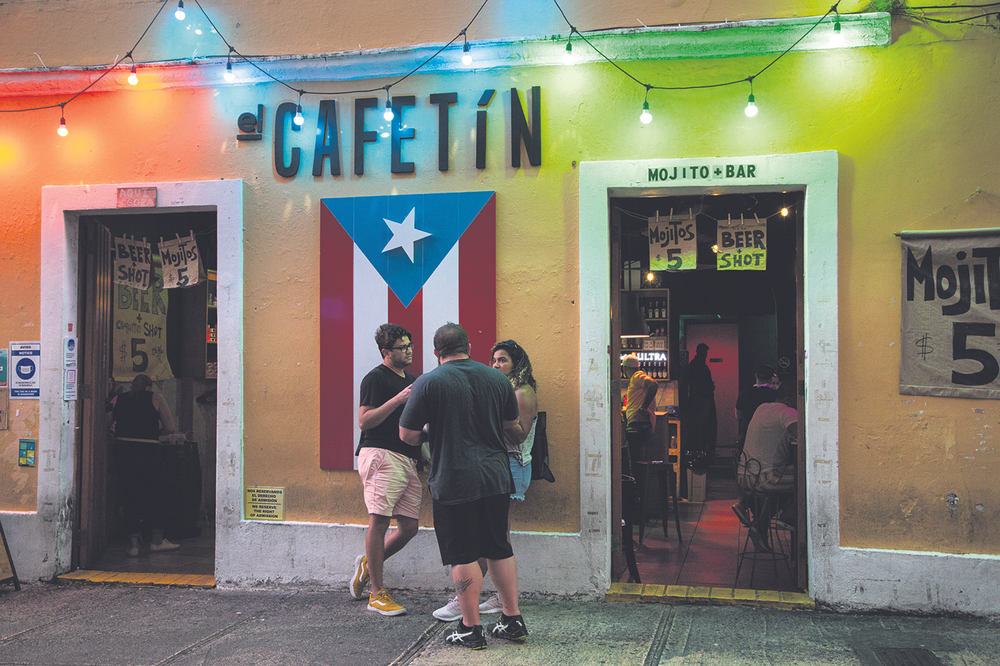
---
A recent study published in the Journal of the American Heart Association (AHA) indicates that young adults in Puerto Rico may possess subpar cardiovascular health as a result of lifestyle choices that could elevate their risk for heart disease and stroke in the future.
The investigation revealed that approximately 75% of adults on the island aged 18 to 29 had suboptimal cardiovascular health measurements due to low rankings in nutrition, physical activity, and body mass index. This is the first research focusing on the cardiovascular wellness of adults in the U.S. territory utilizing risk factors known as Life’s Essential 8, according to an AHA press release.
“Young adulthood is a critical period for establishing lifelong health habits,” stated the study’s co-lead author Dr. Milagros Rosal, vice provost for health equity at the University of Massachusetts Chan Medical School in Worcester. “It’s essential to comprehend the stability of cardiovascular risks or health scores, the factors leading to health decline, and what interventions might enhance cardiovascular health” for this demographic.
Among Hispanic adults in the U.S. aged 20 and over, 52% of men and 37% of women are affected by cardiovascular disease, based on AHA data. Earlier studies have indicated poor cardiovascular health among U.S. adults aged 18 to 44 and young Puerto Rican adults in the mainland U.S., while a previous smaller scale study found similar results for Puerto Rican adults aged 18 to 23 residing in the main metropolitan areas of San Juan and Caguas, according to an AHA statement.
“The research conducted in the U.S. suggests that cardiovascular health in young adults is not optimal, so we aimed to determine if this trend is also seen in Puerto Ricans living on the island,” explained co-lead author Cynthia M. Pérez, a professor in the biostatistics and epidemiology department at the University of Puerto Rico Graduate School of Public Health in San Juan.
According to the study’s authors, addressing this knowledge void is crucial considering the high rates of obesity, lack of physical activity, and smoking among young adults in Puerto Rico—lifestyle elements that heighten their cardiovascular disease risk, the statement remarked.
Researchers analyzed data gathered from 2020 to 2023 from 2,162 participants in PR-OUTLOOK, a continuous study examining the connection between stress and cardiovascular risk factors in adults aged 18 to 29 in Puerto Rico. Each participant’s health was evaluated using Life Essential 8, a set of lifestyle practices and health indicators identified by the AHA aimed at promoting and preserving good cardiovascular health. The criteria include diet quality, physical activity, nicotine exposure (including vaping), sleep duration, BMI (the ratio of weight to height), and levels of non-HDL (“bad”) cholesterol, blood pressure, and blood sugar. Overall scores were classified as ideal, intermediate, or poor.
Approximately 27% of participants achieved an ideal overall score, 69% fell into the intermediate category, and nearly 4% had poor scores. While most participants had high ideal scores for blood glucose, nicotine exposure, sleep duration, non-HDL cholesterol, and blood pressure, they scored poorly on diet quality, physical activity, and BMI.
“We also found notable gender differences in overall cardiovascular health and in four of the eight cardiovascular health components,” Pérez mentioned.
About 30% of women exhibited an overall ideal cardiovascular health score compared to 24% of men, she observed.
“Men demonstrated lower nicotine exposure, lower non-HDL cholesterol, and higher blood pressure, whereas women had reduced physical activity scores,” she explained.
Olveen Carrasquillo, a professor of medicine and public health sciences at the University of Miami’s Miller School of Medicine, expressed his satisfaction that researchers are collecting cardiovascular health data in Puerto Rico, which he believes is frequently ignored in national health surveys.
The results reveal that “a significant number of [young] individuals are in that critical zone where early intervention is crucial to prevent heart disease and other health problems as they age,” noted Carrasquillo, who was born in Puerto Rico and raised in New York but was not involved in the study.
The “most surprising” finding, he stated, was the low levels of physical activity.
“This serves as a wake-up call for everyone to increase their activity levels,” Carrasquillo remarked.
Many young Puerto Ricans encounter systemic obstacles that hinder their pursuit of optimal health, including food insecurity, economic hardship, a lack of healthcare providers, and a continuous financial crisis on the island, as noted by the study’s authors. The financial obligations of Puerto Rico’s debt consume resources that could be more effectively utilized for healthcare, Carrasquillo added.
